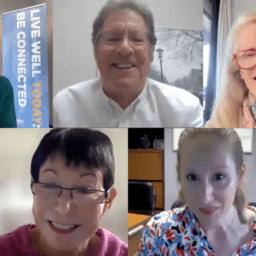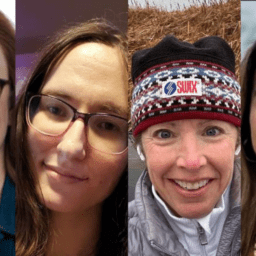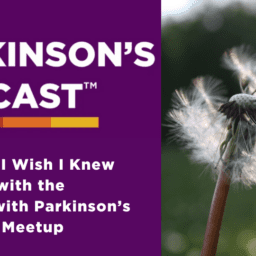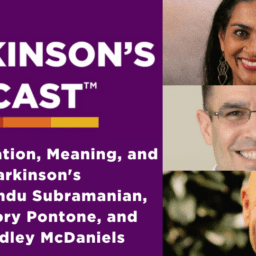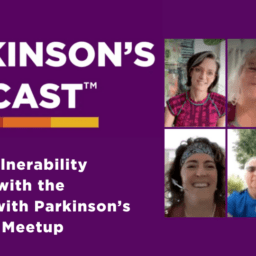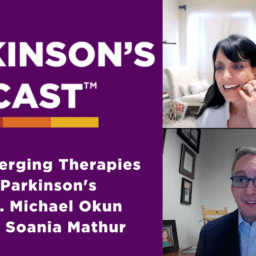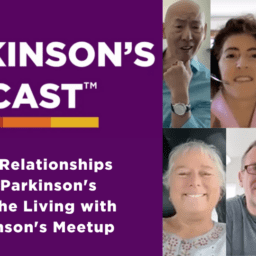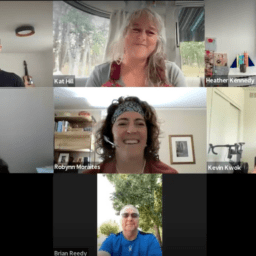During our April Living with Parkinson’s Meetup, the panelists discussed how they continue to take action and communicate well while living with the many challenges of Parkinson’s.
They panelists celebrated former Davis Phinney Foundation Ambassador, Living Well With Parkinson’s Meetup panelist, and longtime friend of the Foundation Tom Palizzi, who passed away in early April. Special thanks to Amy Carlson, Heather Kennedy, Lorraine Wilson, and Marty Acevedo who joined our regular panelists to share memories of Tom.
Read on for a summary of the conversation and to access a recording of the meetup. If you haven’t attended our meetups live, register to receive the link to do so.
Download the audio version of this webinar.
Taking Action to Live Well
Even when you know that taking action is crucial for living well with Parkinson’s, there are times when you have to step back and accept a new reality. Whether that means leaving a fulfilling career, taking a break from a group you founded, or something else, taking action may mean letting go of something that was once a key part of your life.
During the meetup, the panelists said the most important things are to keep yourself active in new ways, set boundaries, adjust those boundaries as time passes, ask for help when you need it, and give yourself grace as you navigate the changes and challenges you face.
What you shouldn’t step away from, however, is social connection. “It’s community first and foremost with Parkinson’s,” Brian Reedy said. The panelists stressed the importance of connecting with people who understand what you’re going through and who will support you as you are now. Taking action to live well is easier when you are part of a community that “gets” you, like the Davis Phinney Foundation and other Parkinson’s communities. Reach out early and often.
The Challenges and Importance of Communicating
Parkinson’s impacts your ability to communicate in various ways. This month’s discussion touched on several of these, including how Parkinson’s can weaken your voice, lead to facial masking, and affect your abilities to text, email, and process long messages.
The good news is that there are actions you can take to address these–and other–communication challenges. Speech-language therapy helps strengthen your voice and helps address facial masking, in addition to many other benefits. Parkinson’s Voice Project offers free speech therapy programs.
Voice-to-text services also help some people with Parkinson’s communicate more easily on their phones (though for others, it presents its own unique challenges). The Speech Accessibility Project is working to improve these services for people with Parkinson’s and other conditions with resulting speech deficits. Another important part of navigating difficulties with digital communication is to explain to your friends and family that you need texts and emails to be concise and/or broken into short, focused paragraphs. This makes it easier to process information.
There are other things you can communicate to your friends and family that may also help. Be upfront about how you need communication styles to change. Consider reminding friends and family that it may take you longer than before to respond to messages, and that you might only be able to respond with shorter messages like a simple one-word answer or even an emoji. For people you don’t see often, remind them about facial masking, if that is a part of your Parkinson’s experience, so they don’t misinterpret your reactions.
NEXT MEETUP
Join us for our next meetup on May 16, 2024.
The panelists always welcome your questions! Please send them using this form or by emailing blog@dpf.org.
ADDITIONAL RESOURCES
Moments of Victory® – Tom Palizzi Meets Each Day with Enthusiasm and Optimism
Tips for More Expressive Communication for People with Parkinson’s
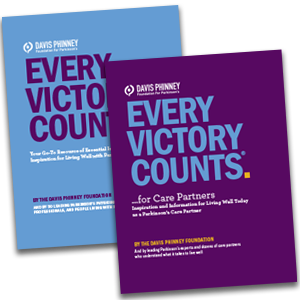 WANT MORE PRACTICAL ARTICLES LIKE THIS?
WANT MORE PRACTICAL ARTICLES LIKE THIS?
You can learn much more about living well with Parkinson’s today through our Every Victory Counts® suite of resources. Each manual is packed with up-to-date information about everything Parkinson’s. Click the link below to reserve your manual(s).
Thank you to our 2024 Gold Partner, AbbVie, and our Silver Partner, Mitsubishi Tanabe Pharma America, for their ongoing support of these must-have manuals. Additionally, we’d like to thank Barbara and Dale Ankenman, Abby and Ken Dawkins, Bonnie Gibbons, Irwin Narter, Lorraine and J Wilson, and Gail Gitin in loving memory of Gene Gitin for their generous donations that allow us to make these resources available and accessible to all.






